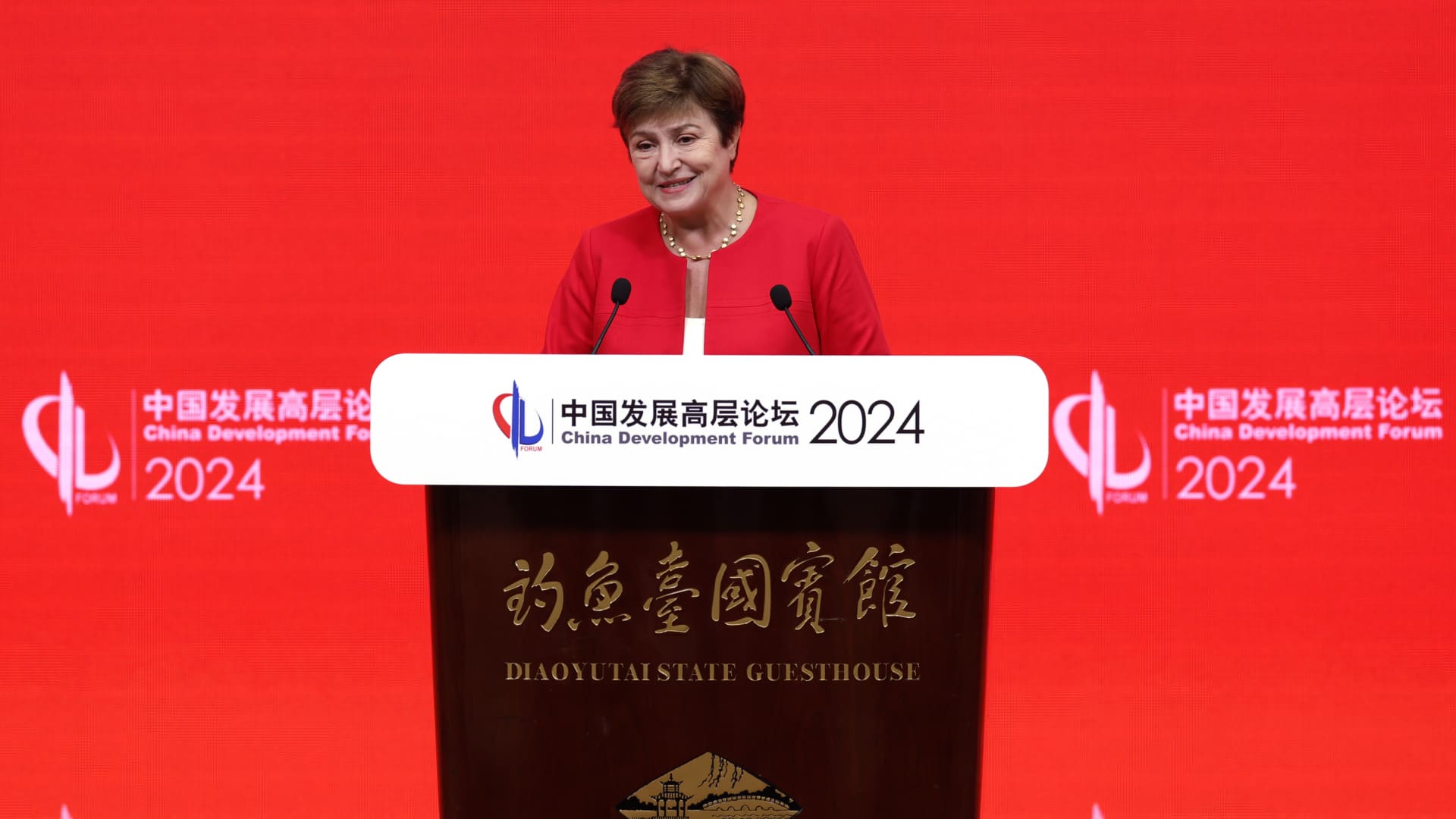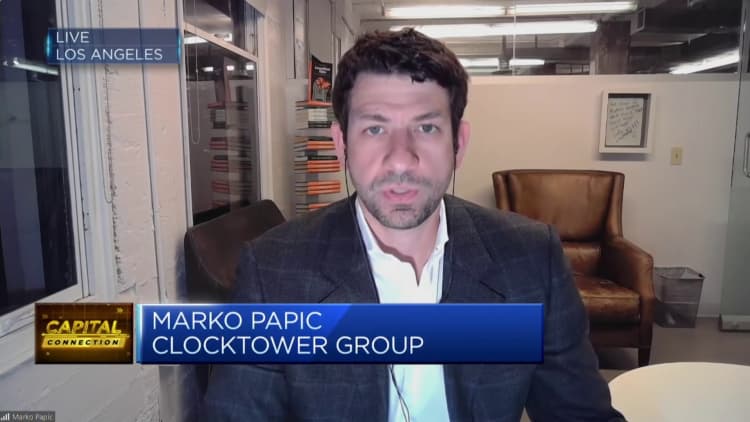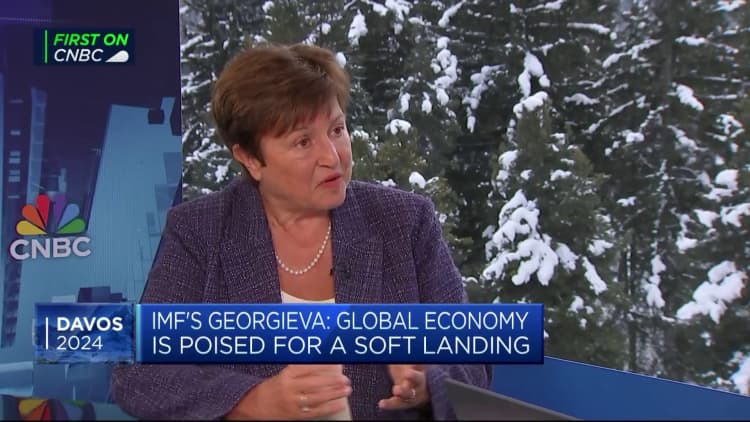China faces ‘fork in the road,’ IMF chief says, urging Beijing to embark on pro-market reforms
3 min read

Kristalina Georgieva, Director of the International Monetary Fund (IMF), speaks during the China Development Forum 2024 at the Diaoyutai State Guesthouse on March 24, 2024 in Beijing, China.
China News Service | China News Service | Getty Images
China has two choices right now: return to its old economic policies, or choose reforms to spur growth, according to the International Monetary Fund’s Managing Director Kristalina Georgieva.
“China is poised to face a fork in the road — rely on the policies that have worked in the past, or update its policies for a new era of high-quality growth,” Georgieva said Sunday at the China Development Forum in Beijing.
“With a comprehensive package of pro-market reforms, China could grow considerably faster than a status quo scenario,” she said, according to prepared remarks by the IMF.
This could unleash growth that would “amount to a 20% expansion of the real economy over the next 15 years — in today’s terms, that is like adding US$3.5 trillion to the Chinese economy,” she added.
While the country has seen a post-Covid rebound — with growth exceeding 5% in 2023 — it faces factors such as low productivity growth and an aging population, according to the Bulgarian economist.
Still, she added: “In the medium term, China will continue to be a key contributor to global economic growth.”
At the this year’s two-day China Development Forum, which started Sunday, Chinese officials are expecting more than 100 foreign participants, including CEOs of major overseas firms as well as leaders of the IMF and World Bank.
During a keynote speech at the forum, Chinese Premier Li Qiang pledged efforts to promote “high-quality development,” “intensify macro-policy adjustments,” and expand domestic demand, according to state media reports. He also vowed a “higher level of openness” while addressing challenges.
Separately, officials reportedly pledged further protection to foreign-funded firms as overseas investment flows to China dry up.
The measures coincide with other moves Beijing has made in recent weeks to boost confidence among foreign investors and businesses as it pursues a growth target of about 5% this year.
The Chinese government previously admitted the 2023 target “will not be easy,” particularly since the country continues to face overcapacity and faltering price pressures amid a property and debt crisis.

At the World Economic Forum in Davos earlier this year, Georgieva had outlined some short- and long-term challenges facing the world’s second-largest economy, warning that China needed structural reforms in order to ramp up growth and move toward boosting domestic consumption and confidence.
Separately, the IMF said in November that it expected China’s economy to grow 4.6% in 2024, warning of continued real estate struggles.
On Sunday, Georgieva highlighted the “most-pressing near-term challenges” for China, which include “transitioning the property sector to a more sustainable footing and reducing local government debt risks.”
In order to avoid this scenario, China will need to take “decisive steps” to complete unfinished housing stranded by bankrupt developers and to reduce risks from local government debt, the IMF chief said Sunday.
That way, the country could “accelerate the solution to the current property sector problems and lift up consumer and investor confidence,” she added.
“A key feature of high-quality growth will need to be higher reliance on domestic consumption,” Georgieva, said, adding that doing so “depends on boosting the spending power of individuals and families.”







